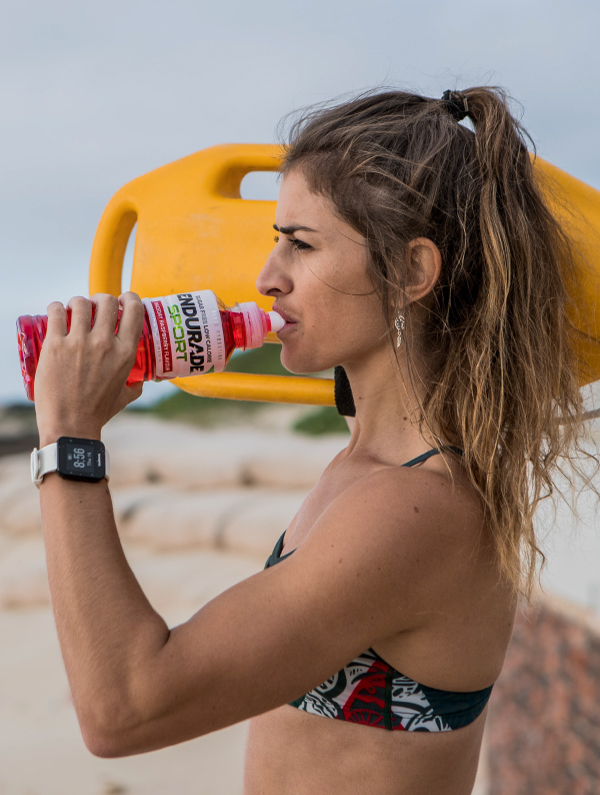
Link to previous ISO22000 and SANAS Accredited Laboratories article: http://nutritechfit.com/lab-testing-and-using-sanas-accredited-laboratories/
NUTRITECH will continue to test and publish unbiased results on the NUTRITECH website and social media channels to comply with our view of a transparent industry.
View SANAS Accredited Laboratory Test Results and Certifications: http://nutritechfit.com/tested/
NUTRITECH adds FSSC Certification and FDA Registration.
FSSC Scope
FSSC 22000 is a complete certification Scheme for food and feed safety management systems, which are in compliance with the publicly available food safety management systems standard ISO 22000 ‘Requirements for any organization in the food chain’, technical specifications for sector PRPs and additional Scheme requirements.
- Why has FSSC 22000-Q been developed?
There has been strong interest from organizations using FSSC 22000 certification for an opportunity to integrate food quality management in the scope of their certification. To meet this demand, the Board of Stakeholders (BoS) decided on 24 February 2015 to add a voluntary ISO 9001:2008 module to the existing FSSC 22000 certification scheme, offering a combined FSSC 22000 and ISO 9001 certificate. As from 1 March 2015 FSSC 22000-Q certification is available for organizations wishing to integrate food quality management into their certified food safety scope.
- Is FSSC 22000-Q mandatory?
No, it is a voluntary add-on module to FSSC 22000. Only organizations that are FSSC 22000 certified can integrate ISO 9001 and acquire a FSSC 22000-Q certificate. Organizations can still continue to choose for a separate ISO 9001 certification. Keep in mind: You can do a food safety management (FSSC 22000) audit without covering quality, but not the other way around, i.e. you cannot do a quality audit (ISO 9001) and cover safety or you cannot do a FSSC 22000-Q Certification without covering food safety.
- Is it possible to have separate FSSC 22000 and ISO 9001 certificates?
Yes, it is possible but FSSC 22000 does not encourage the issuance of a separate ISO 9001 certificate instead of a FSSC 22000-Q certificate. The purpose of the FSSC 22000 Q-Module is an FSSC 22000-Q certificate.
- Is the FSSC 22000-Q audit always a full audit?
Yes the FSSC 22000-Q audit is always a full audit. All the FSSC 22000 and ISO 9001 requirements have to be audited and reported on.
- What are the normative requirements?
The requirements for the development, implementation and maintenance of the quality management system are laid down in the standard ISO 9001:2008 “Quality management systems – Requirements”. All ISO 9001 clauses will be assessed in an FSSC 22000-Q audit.
- What is ISO 9001:2008?
The ISO 9001 standard is a quality management system, undertaken by companies to illustrate their capacity to correctly adopt and manage a quality system. The ISO 9001 standard is based on a number of quality management principles including a strong customer focus, the motivation and implication of top management, the process approach and continuous improvement. Using ISO 9001 helps a company ensure that customers get consistent, good quality products and services, which in turn provides many business benefits. ISO 9001 includes similar requirements like ISO 22000, but it is not focused on food safety.
- How will the revision of ISO 9001:2008 to ISO 9001:2015 affect FSSC 22000-Q?
The FSSC Q-Module is linked to ISO 9001:2008. The consequences of the revision of the standard to ISO 9001:2015 will be assessed by FSSC 22000 soon and FSSC 22000-Q will
updated to ISO 9001:2015 accordingly after a decision of the Board of Stakeholders to do so.
The main revisions in 9001:2015 are:
– The High Level Structure (HLS). All the new ISO standards will comply with the HLS which is the new standard layout used by ISO.
– Introduction of risk management (Section 6.1). This further aligns ISO 9001 with ISO 22000 and facilitates the combination (integration) of the two standards in FSSC 22000-Q.
- What is the required audit duration?
In addition to the FSSC 22000 audit duration requirements shown in FSSC Scheme document Part II, Appendix II A1, section 5 and IAF MD 5:2013 (ISO 9001), the audit duration for the integrated FSSC 22000 and ISO 9001 audit shall by based on IAF mandatory document 11 (IAF MD 11), section 2.1.5.1.
- What are the requirements for auditor qualification?
The FSSC 22000-Q audit is a fully integrated audit. All the audit team members have to be qualified for FSSC 22000 and ISO 9001 i.e. fully qualified to conduct the integrated audit. In addition to the auditor qualification requirements shown in FSSC Scheme document Part II, Appendix II A1, the auditor has also to be qualified for ISO 9001.
- Is there an audit report template available?
In addition to the audit report requirements shown in FSSC Scheme document Part II, Appendix A1, the audit report for the combined ISO 22000:2005 and ISO 9001:2008 audit shall cover all elements as indicated in Appendix 1 and 2 in order to confirm that all requirements are assessed and reported.
- What are the requirements for a CB to become licensed?
FSSC 22000-Q, section 3.1 requires that the CB shall have a valid ISO 9001 accreditation. CBs shall apply for a license with FSSC 22000 for the FSSC Q-Module. The existing license has to be extended with the Q-Module.
- How is the module managed by FSSC 22000?
– FSSC 22000 Integrity program oversight of both FSSC 22000 and 9001 for confidence
– Holistic view of integrated management system in line with ISO’s current revision on management systems
– Only licensed CBs by FSSC 22000 can certify FSSC 22000-Q.
- Will FSSC 22000-Q be benchmarked by the Global Food Safety Initiative (GFSI)?
Food quality certification falls outside of the GFSI benchmarking process and recognition.
Nonetheless, FSSC 22000 will apply all its existing and future GFSI and ISO based requirements to the certification process for good governance and integrity ensuring security and confidence in the FSSC 22000-Q module. This means, as a start, that certification bodies, offering the FSSC quality module, must be accredited for ISO 9001 and auditors must meet all relevant competence requirements.
FDA Scope
The Public Health Security and Bioterrorism Preparedness and Response Act of 2002 (the Bioterrorism Act) directs the Food and Drug Administration (FDA), as the food regulatory agency of the Department of Health and Human Services, to take steps to protect the public from a threatened or actual terrorist attack on the U.S. food supply and other food-related emergencies.
To carry out certain provisions of the Bioterrorism Act, FDA established regulations requiring that:
- Food facilities register with FDA, and
- FDA be given advance notice on shipments of imported food.
These regulations became effective on December 12, 2003.
The FDA Food Safety Modernization Act (FSMA), enacted on January 4, 2011, amended section 415 of the Federal Food, Drug, and Cosmetic Act (FD&C Act), in relevant part, to require that facilities engaged in manufacturing, processing, packing, or holding food for consumption in the United States submit additional registration information to FDA, including an assurance that FDA will be permitted to inspect the facility at the times and in the manner permitted by the FD&C Act. Section 415 of the FD&C Act, as amended by FSMA, also requires food facilities required to register with FDA to renew such registrations every other year, and provides FDA with authority to suspend the registration of a food facility in certain circumstances. Specifically, if FDA determines that food manufactured, processed, packed, received, or held by a registered food facility has a reasonable probability of causing serious adverse health consequences or death to humans or animals, FDA may by order suspend the registration of a facility that:
- Created, caused, or was otherwise responsible for such reasonable probability; or
- Knew of, or had reason to know of, such reasonable probability; and packed, received, or held such food.
Trust manufacturing facilities that are certified and registered with reputible international and local organisations and test results from SANAS Accredited laboratories, published by sources without ulterior motives.
NUTRITECH® MANAGEMENT




